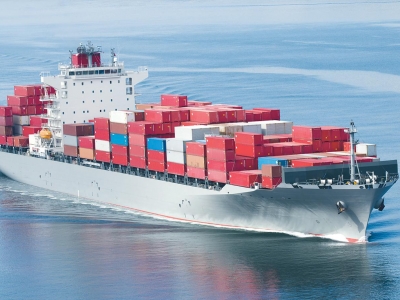Bureau of International Recycling survey findings re container security
The results of a recent survey conducted by the ICC International Maritime Bureau (IMB) in conjunction with an international trade association have served to underline the challenges associated with container security and theft from containers.
The recent survey of the Bureau of International Recycling (BIR) membership found that thefts occurred from consignments carried by all of the major container shipping lines, on shipments originating in many countries. The common factor was that the thefts occurred in consignments almost exclusively bound for southern China- though this is more a reflection of the fact that the country is by far and away the biggest importer of scrap metals. Losses were however also reported in other parts of the world.
IMB Director Pottengal Mukundan commented: “We share the concerns of the BIR over the scale and nature of the theft of scrap metals in certain parts of the world. The results reveal that all too often valuable cargoes – notably copper scrap exports- are removed from shipping containers before they reach their intended recipients. The reported losses run into millions of dollars, with one BIR member reporting losses in excess of USD 1 million in a 12 month trading period.”
Most of the respondents reported that usually a small proportion of the goods carried in the containers were stolen, often between one and five percent of the total container-load, though there were cases where entire container loads had gone missing. Whilst in isolation such losses may appear to be negligible, the overall losses experienced are significant, given the relative price increases that such commodities have experienced over the last couple of years.
In some of the cases where a part of cargo was stolen, it has been reported that the container seal (designed, in theory, to indicate whether or not a container has been opened between parties in different locations) remained intact despite the fact that someone had clearly gained access. In one case, torches and shovels were found inside the container once it reached its intended destination!
The IMB has investigated cases where organised gangs have found ways to obtain information on the contents of containers in transit, compromise individuals working in port authorities and haulage firms using incentives and threats, organise the theft of the goods in the container and have it spirited away or sold before the victims can mount an investigation.
Mr Mukundan continued: “Each individual loss is small and may not by itself spur the authorities to allocate resources to investigate and prosecute. It is essential therefore to collect data on all similar losses in an area. This pooled information could well indicate a much larger criminal activity which the authorities can focus on. This will lead to a meaningful investigation and identification of the methods and hauliers/truck drivers who may be involved in the conspiracy. Organisations such as the IMB are well suited to putting together such data augmented by other sources of relevant information which the IMB works with on a daily basis. The collection of data is the first essential step in the response chain.”
Source: ICC-CCS






























































